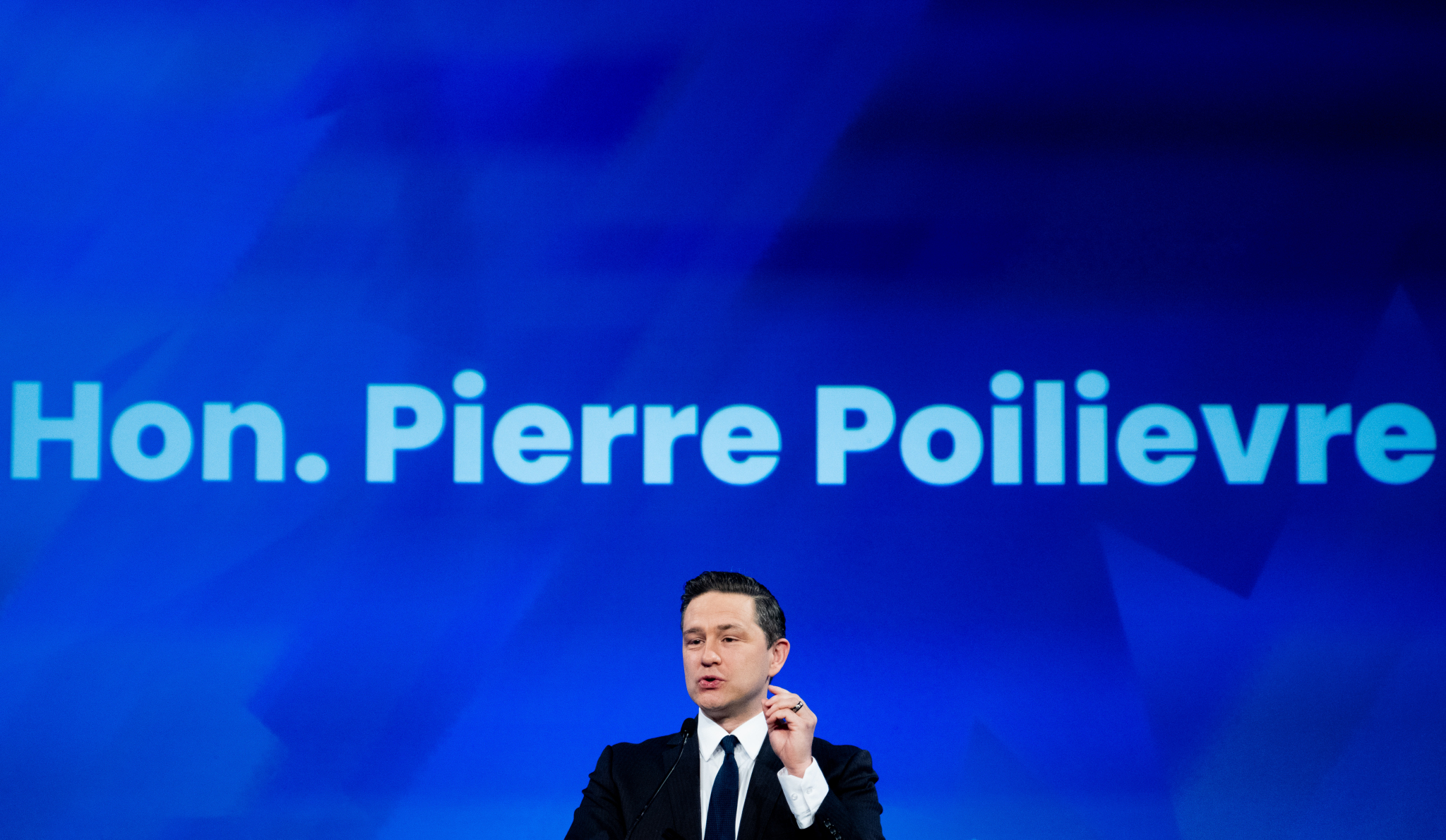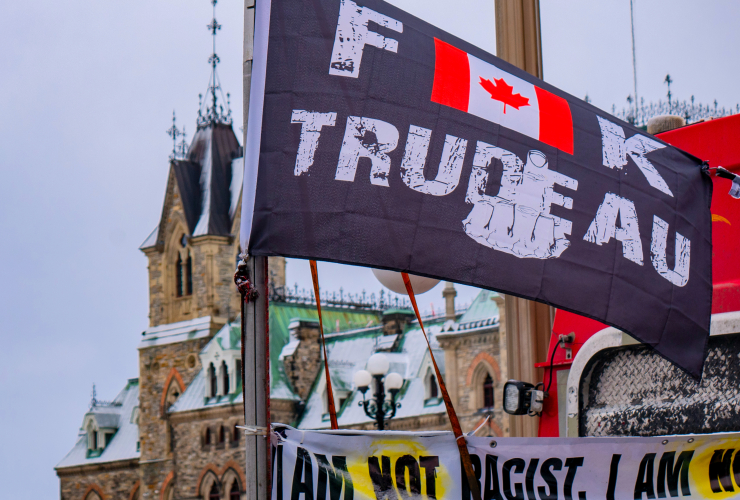The only thing Pierre Poilievre and Jagmeet Singh had in common Thursday was their timing.
Separately but simultaneously, Canada's federal Conservative and NDP leaders laid out their respective visions for how best to defeat Prime Minister Justin Trudeau.
And while each took aim at Trudeau's record and rallied the party faithful with now-familiar pitches, only one of them spent any time attacking the other.
Singh — speaking at the NDP's annual Progress Summit — said while Trudeau has failed to improve the lives of middle-class Canadians, the Conservative alternative would be no better.
"Everyone in this room knows that Pierre Poilievre would just make things worse," he said.
Singh mentioned Poilievre by name no fewer than four times, dismissing as disingenous his promises to help the working class and noting he lacks a coherent, meaningful plan to confront climate change.
"Pierre Poilievre doesn't care about working families," Singh said. "He doesn't care about working class people."
Public opinion polls show Poilievre's affordability message has been resonating with voters, particularly among those 35 and younger, as well as with those who identify as working-class Canadians — two demographics that have long been critical sources of NDP support.
Under Poilievre, the Conservatives have been aggressively targeting NDP ridings, especially vulnerable ones in British Columbia and northern Ontario.
Poilievre, however, left those tactics at the door of the annual Canada Strong and Free Network conference, entirely ignoring his NDP counterpart.
Instead, Poilievre lingered on former Bank of Canada governor Mark Carney, dubbing the long-rumoured potential Trudeau successor as "Carbon Tax Carney" for his support of the Liberal policy.
Poilievre also took aim at Trudeau's credentials as a Liberal, painting himself as the "common sense" alternative Canadians need to bring down the cost of living and crime.
Trudeau's late father, former prime minister Pierre Elliott Trudeau, once said the state has no place in the bedrooms of the nations, Poilievre said.
"Now, his son wants the government to be in every room of your house," he said.
"And your business, and your wallet, and your bank account, and your internet account — he wants to be everywhere always. See, the thing is, it's not that Justin Trudeau is too liberal. It's that he's not liberal at all; he is deeply, deeply illiberal."
New Brunswick Premier Blaine Higgs used similar language during a fireside chat earlier in the day, where he discussed becoming the first premier to lead the charge on requiring teachers to seek parental consent before using a student's preferred pronouns.
Demands to do so have been bubbling up among conservative and right-wing circles across the United States and Canada in recent years, but Higgs became the first Canadian leader to leap headlong into the debate around "parental rights."
The term refers to the widespread concerns of parents about what children are learning about LGBTQ+ issues in schools — often fuelled, some say, by misinformation and outright bigotry.
Higgs said he never expected his policy changes to prompt other conservative premiers, like his counterparts in Alberta and Saskatchewan, to make similar moves.
"We certainly have talked amongst colleagues," Higgs said.
"And so in those discussions, did I think it would turn into a national thing? No, that wasn't a discussion."
New Brunswick became the first province in Canada to impose the rule for students under 16 last year, prompting backlash from the LGBTQ+ community, doctors and the province's advocate for children, who warned it could place vulnerable kids at risk.
Higgs, who has been premier since 2018, is facing an election this year, a fight made tougher by a caucus revolt spurred by his gender policy changes.
He says the week he introduced those changes, he and his wife of more than 40 years said: "This could be the issue that either continues us in government or takes us out."
Poilievre did not make any mention of gender issues in Thursday's speech, reflecting how Conservatives want to focus on affordability and housing concerns, rather than leading the charge on culture-war issues.
Avoiding those issues has not always been easy, however, thanks in large part to provincial conservatives bringing them to the forefront.
Poilievre has said he believes minors should not have access to puberty blockers and that transgender athletes should be barred from female sports and change rooms.
This report by The Canadian Press was first published April 11, 2024.
Any working class people who
Any working class people who support Poilievre are basically inviting a vampire to enter the house.
I know change is needed, but
I know change is needed, but how a population that appeared to be progressive can support a leader as well as provincial leaders who talk about shadows. Affordability. How! No answer except fire Bank of Canada head. Crime? Crime is falling yet conservatives maintain it is rising rapidly.
I guess the young will get a lesson in you get what u vote for, but I don't envy them. Conservatives are grab power mode at the federal and provincial levels, and power means less freedom and less democracy
People are tired of Trudeau.
People are tired of Trudeau. They're angry at his failures and won't acknowledge his successes. They want change. They'll vote against Trudeau, not for Poilievre, who happens to be a master at nurturing anger and a dropout at everything else. Loudmouths get more press.
In other words, the polls refect emotions in the absence of even elementary logic and analysis that compares policy between leaders. And emotion is susceptible to media manipulation.
But one thing is true. Our political leaders are second and third rate, and they each dwell 24/7/365 in their party's armoured ideological echo chamber. There is absolutely no impetus for constructive discussion and consensus building with one or two of their neighbours who hold similar views on some policies, such as climate change.
It was not always thus.





Comments